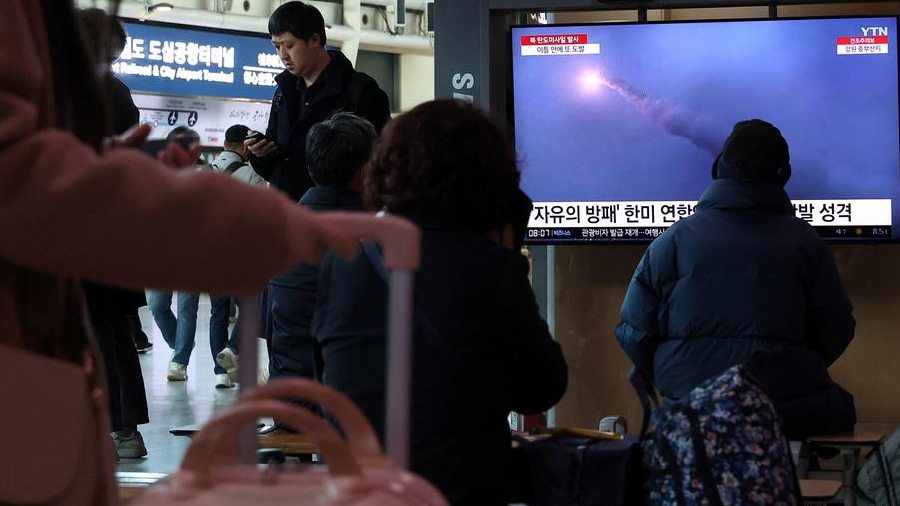Pyongyang test-fired an intercontinental ballistic missile (ICBM) on Thursday, its third launch this week, the South Korean military said.
"Our military detected one long-range ballistic missile fired from around the Sunan area in Pyongyang," Seoul's Joint Chiefs of Staff said, adding it was a long-range ICBM.
Japan's government also confirmed the launch, and its coast guard estimated it landed roughly an hour after it was fired.
Japan's Defense Ministry said the missile appeared to have flown higher than 6,000 km for about 70 minutes.
Japanese Defense Minister Yasukazu Hamada said the missile likely landed in the waters outside his country's exclusive economic zone. The landing site was about 250 kilometers (155 miles) off the western island of Oshimaoshima, which is close to where other North Korean ICBMs fell in recent months after test flights.
Multiple missile launches
North Korea had already staged two test launches this week amid joint military exercises being held by the South and the United States.
Pyongyang views the drills as a rehearsal for invasion and warned on Sunday that it will embark on "important practical" war deterrence measures.
It test-fired two missiles from a submarine in the East Sea on the same day.
On Tuesday the North test-launched two short-range ballistic missiles off its east coast, South Korea's military said.
UN resolutions prohibit North Korea from testing ballistic missiles, which could also be equipped with a nuclear warhead.
South Korean leader to visit Japan
The latest launch came only hours before South Korean President Yoon Suk Yeol was due to fly to Japan for a rare summit with Prime Minister Fumio Kishida.
The summit, the first in over 10 years, is part of an attempt to overcome the two countries' historical, political and economic disputes and to improve cooperation in the face of the North Korean threat and other challenges.
Both South Korea and Japan are ramping up defense spending and joint military exercises.
"There is an increasing need for Korea and Japan to cooperate in this time of a polycrisis with North Korean nuclear and missile threats escalating," Yoon said ahead of his trip.
"We cannot afford to waste time while leaving strained Korea-Japan relations unattended. I believe we must end the vicious cycle of mutual hostility and work together to seek our two countries' common interests."











